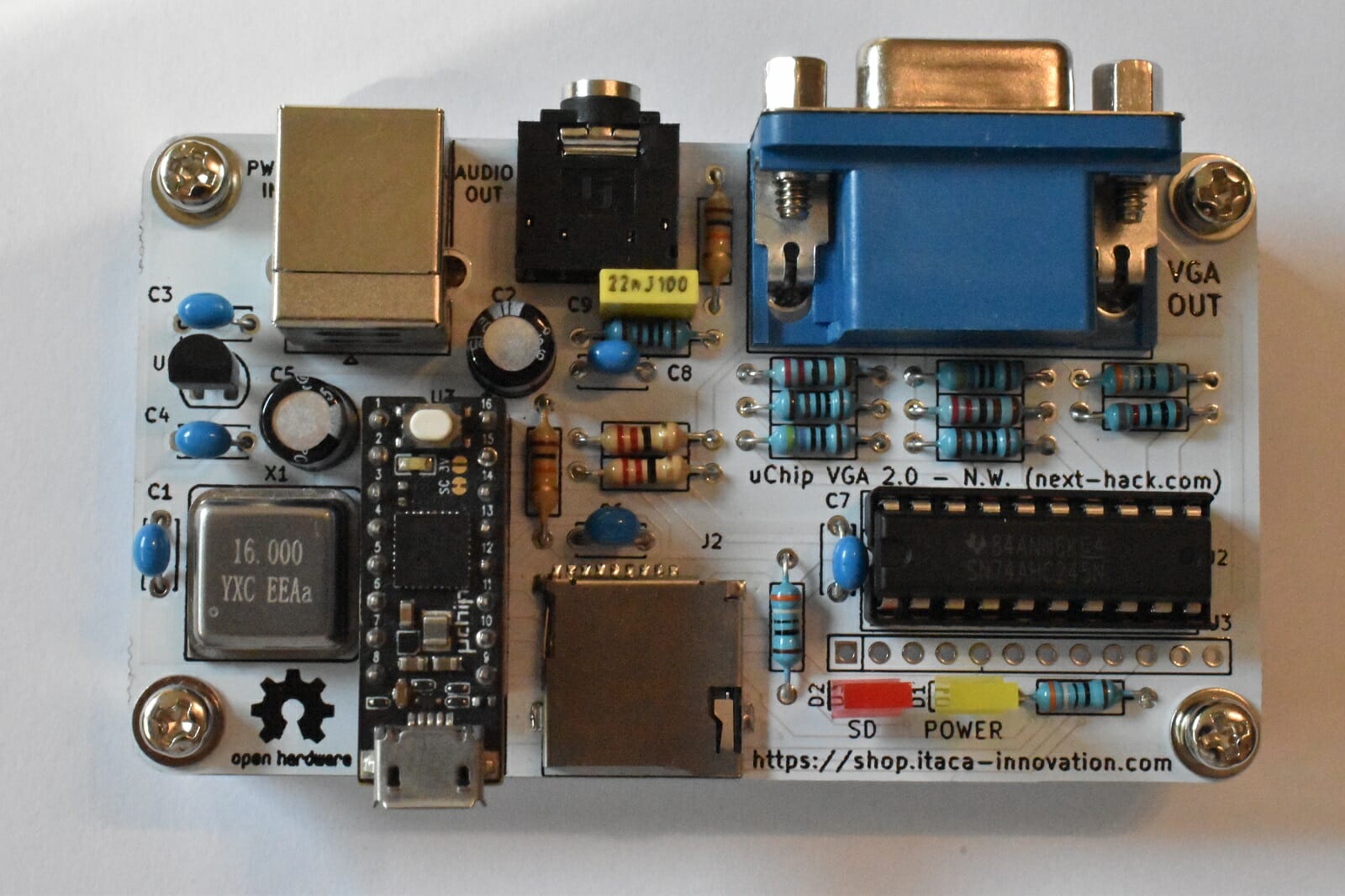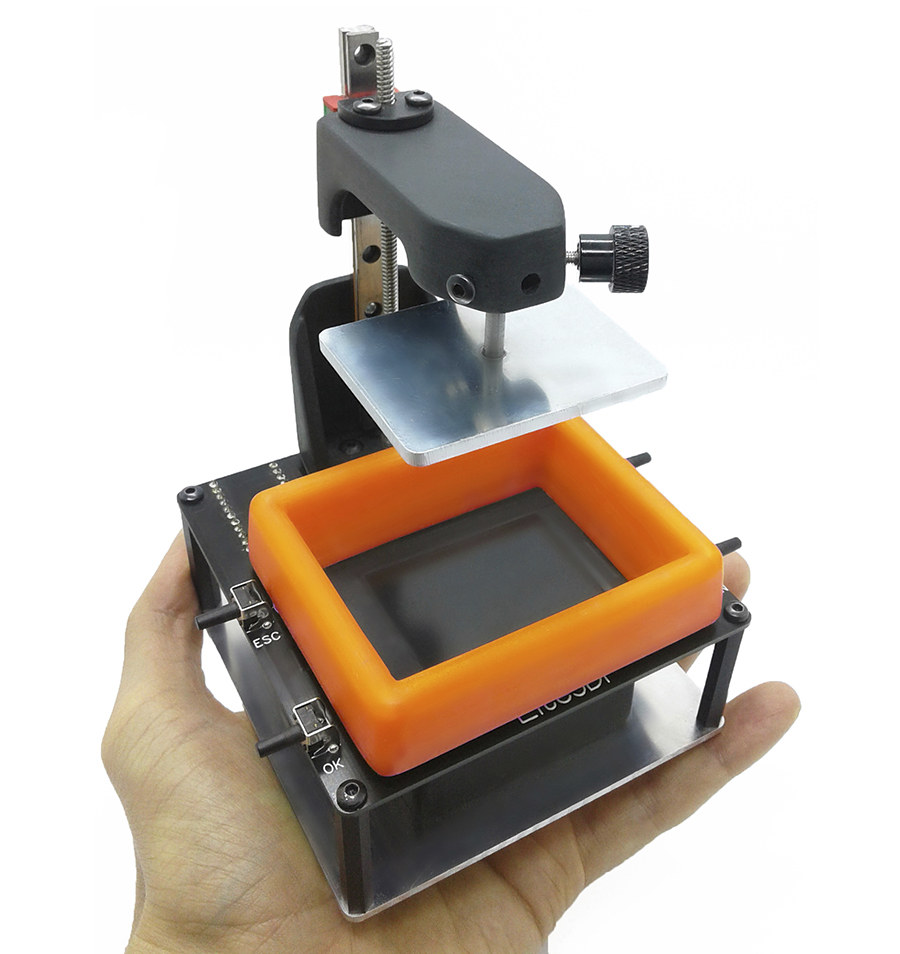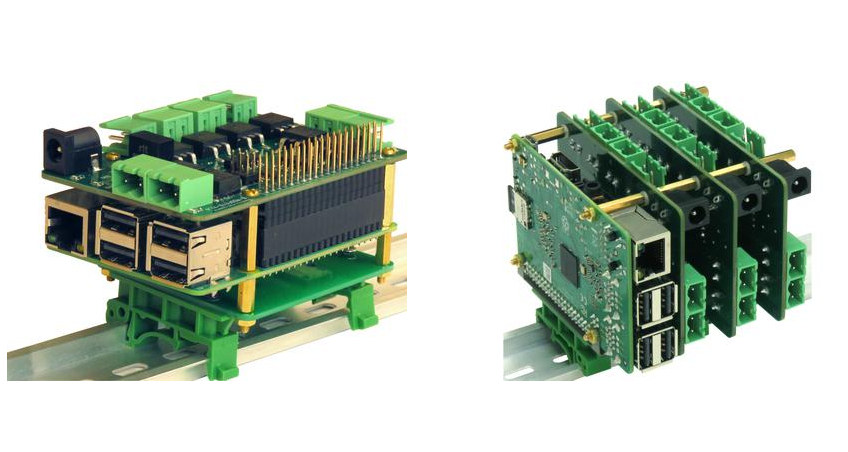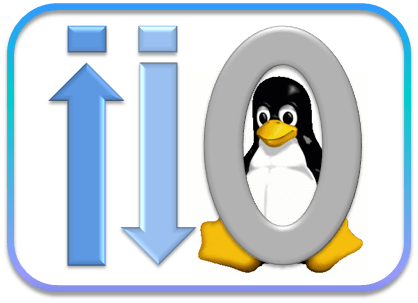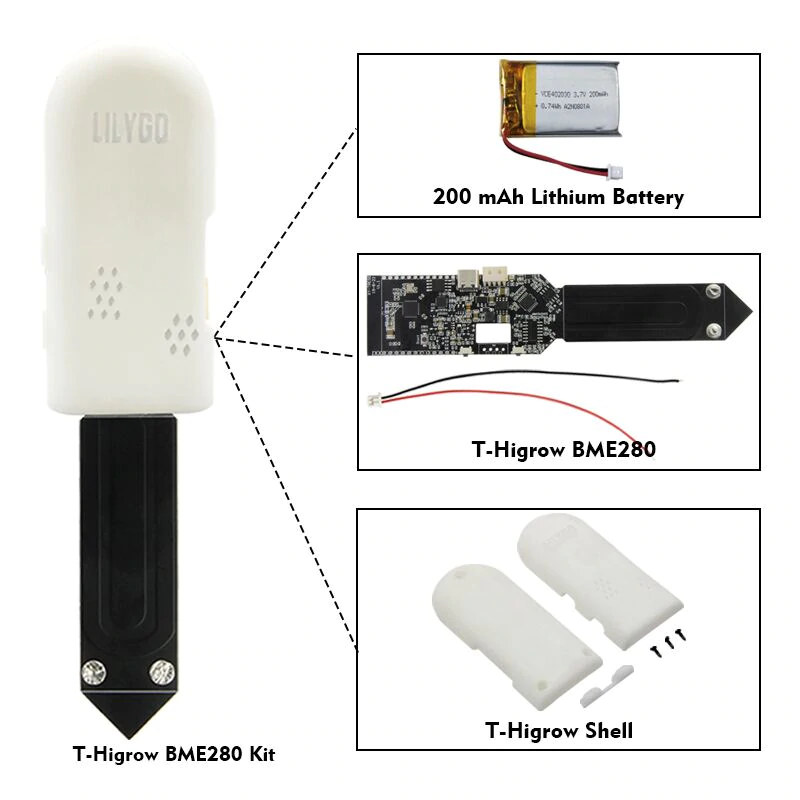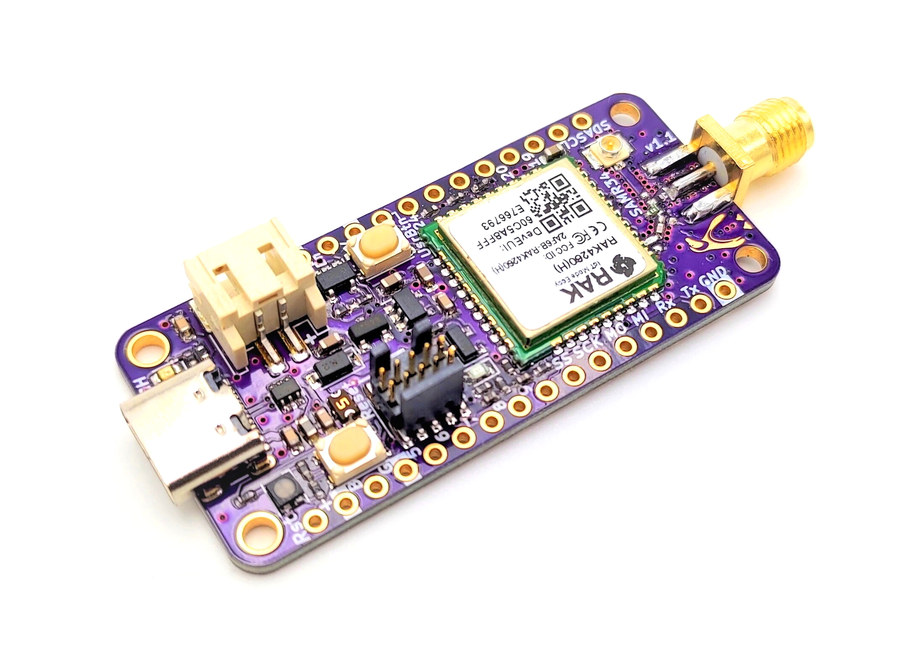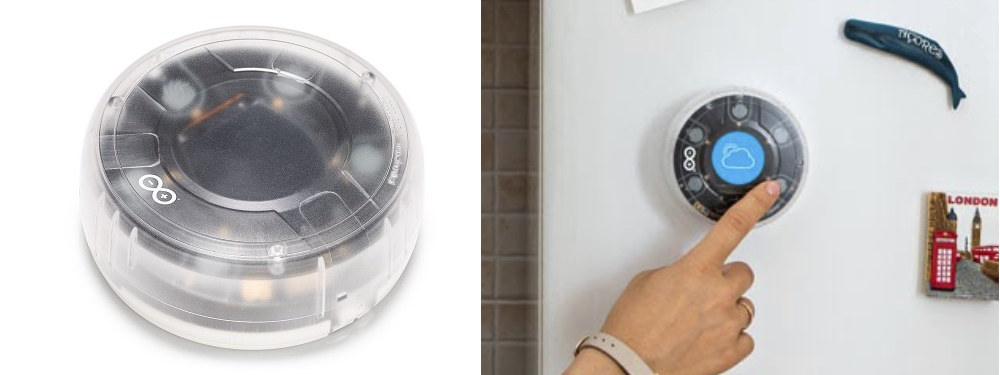M5Stack has just launched its unique and latest core device with a touchscreen e-Ink display. M5Paper ESP32 IoT Development Kit is a fully programmable microcontroller-based platform that can be an ideal choice for your IoT applications. This low-power device could suit such purposes as an industrial controller or smart weather display. The M5Paper comes with the ESP32-D0WD, the same chip that has powered M5Stack Core2. The e-Ink display supports 16-level grayscale, which provides a great reading experience. The display is a GT911 capacitive touch screen that supports multipoint touch and a variety of gesture controls. M5Paper ESP32 IoT Development Kit Specifications SoC – Espressif ESP32-D0WDQ6-V3 dual-core clocked at 240MHz with 520KB SRAM, Wi-Fi, dual-mode Bluetooth connectivity. Memory/storage – 16 MB of flash memory along with 8 MB of PSRAM. Antenna – 2.4GHz 3D antenna. Display – GT911 capacitive touch screen with 960×540 resolution (IT8951 driver) along with 4.7″ e-Ink display, […]
uSVC Arduino VGA board – a portable and programmable retro-gaming console (crowdfunding)
Itaca Innovation previously launched uChip, an Arduino-compatible board that has a Cortex M0+ MCU that features 0.3” spacing between rows. Now, next-hack joined Itaca Innovation to come up with an expansion board for uChip. The uChip Simple VGA Console (uSVC) Arduino based retro-gaming console is open hardware and is a programmable console. It will allow creating and playing retro “9-bit” games with standard USB controllers and keyboards. You will get one uChip (pre-soldered) and the uSVC game loader pre-programmed, a PCB with a pre-soldered SMD MicroSD card reader. It also includes all of the components needed to build your uSVC, and Bill of Material (BOM) and assembly drawings will also be provided. uSVC Specifications uChip is the heart of uSVC (48 x 86 x 17 mm), with a Microchip SAMD21 Arm Cortex-M0+ MCU clocked @ 48 MHz (Arduino Zero compatible). A VGA output of 57 Hz vertical frequency, 30 kHz […]
$89 Lite3DP resin 3D printer fits in the palm of your hand (Crowdfunding)
I thought Selpic A-star 3D printer we recently covered was already small, but if you’re looking for an ultra-portable printer, it will be hard to beat the Arduino-based, open-source hardware Lite3DP resin 3D printer that can fit in the palm of your hand, and weighs just around 350 grams. That also means a pretty small build volume of just 45.1 x 33.8 x 70 mm, so it’s really for small objects, and for instance, a typical Raspberry Pi case could not be printed. But let’s have a look. Lite3DP printer’s key features and specifications: Electronics – All-in-one PCB with Arduino Pro Mini, a driver for the stepper motor, a module for a microSD card, and a screen with dual-functionality. Technology – MSLA // LCD-SLA Resolution – XY: 0.14 mm; Z: 0.05 and 0.1 mm Build volume (W x L x H) – 45.1 x 33.8 x 70 mm Tray volume […]
8-MOSFET solid-state power driver works with Raspberry Pi, Arduino, ESP32 and other maker boards (Crowdfunding)
Using inexpensive relays to switch AC or DC loads work well in most cases, but those relays will be quickly damaged when faced with high DC voltages, fast switching times, or other endurance requirements for which MOSFET’s are better suited, and that’s why MOSFET power supplies are found in 3D printers. Sequent Microsystems has made a habit to provide specialized Raspberry Pi HAT with relays or terminals for resistance temperature detectors that are stackable to supports a larger number for I/O or sensors. The company is now back at it with the 8-MOSFET stackable, DIN-rail mountable board that works not only with Raspberry Pi SBC, but also popular Arduino, ESP32, and other maker boards. 8-MOSFET key features and specifications: Eight MOSFETs with status LEDs 4 optimized for high-current (HC) loads up to 10 A / 24 VDC 4 optimized for high-voltage (HV) loads up to 2 A / 240 VDC […]
LibIIO – Library for interfacing Linux industrial I/O devices
For more than 6 years, the LibIIO library has existed to ease the development of software interfacing Linux Industrial I/O (IIO) devices. It is part of the Linux Kernel and a subsystem that provides support for devices like analog to digital or digital to analog converters (ADCs, DACs). This subsystem includes ADCs, accelerometers, pressure sensors, color, light and proximity sensors, temperature sensors, RF transceivers, and many more. You can use LibIIO natively on an embedded Linux target. It is cross-platform, supporting Linux, Windows, and Mac OS. Analog Devices Inc. was the main company behind LibIIO development, which is currently an active open-source library, which many people have contributed to. What does LibIIO do? LibIIO will identify the channels that belong to each device. It will assign specific attributes, one for the channels and one for the devices. Then, it will also create a context that is a place where all […]
TTGO T-Higrow is a WiFi & Bluetooth connected soil temperature & moisture sensor
LilyGO has made plenty of ESP32 “TTGO” boards with various features be it PoE, battery support, OLED display, cellular connectivity, and even a devkit in watch form factor. The latest product from the company specifically targets smart farming/gardening as TTGO T-Higrow embeds either DHT11 temperature and humidity sensor or BME280 temperature, humidity, and barometric sensor to report soil temperature and moisture over Bluetooth or WiFi. It can also come as a kit with a battery and a 3D printed enclosure. TTGO T-Higrow board specifications: SoC – Espressif Systems ESP32 dual-core LX6 processor @ up to 240 MHz with 520 LB SRAM, Wi-Fi & Bluetooth Storage – 4MB QSPI flash Wireless 2.4 GHz 802.11b/g/n WiFi 4 up to 150 Mbps Bluetooth 4.2 BR/EDR and BLE Sensors Option 1 – DHT11 temperature and humidity sensor Option 2 – BME280 temperature, humidity, and barometric sensor Expansion – 2x 12-pin through holes with UART, […]
Penguino Feather 4260 LoRa development board features RAK4260 module
Adafruit Feather form factor has become more popular in recent years with third-parties introducing Feather compatible boards such as the Giant Board (Linux capable), OrangeCrab (FPGA), or FeatherS2 (ESP32 WiFi + Bluetooth), and as well as FeatherWing add-on boards. Azerbaijan based MakerTronika Labs has launched their own Feather compatible board with LoRa connectivity: Penguino Feather 4260. The development board is powered by a RAK4260 module based on SAMR34 LoRa SiP and supports both 868 and 915 MHz bands. Penguino Feather 4260 specifications: LoRa module – Rak wireless RAK4260 module with: SiP – Microchip ATSAMR34J18 SiP with SAML21 Arm Cortex M0+ MCU @ 48 MHz, 40 KB RAM, 256 KB Flash, Semtech SX1276 LoRa Connectivity Frequency Range – 862 to 1020 MHz High level of accuracy and stability (32MHz TXCO) Max Tx Power: 20dBm; Max Sensitivity: -148dBm; Rx Current: 17mA (typical) Compliant with LoRaWan 1.0.2 Power Consumption Low RX current of […]
Oplà IoT Kit is Arduino’s first open programmable IoT platform
Arduino is well-known for its maker boards and shields that are sometimes sold as part of kits to experiment with electronics. Arduino Oplà IoT kit is a little different as it looks more like an actual consumer product once assembled. Powered by an Arduino MKR WiFi 1010 board, it is designed to make getting started with IoT easy for beginners, while still allowing more advanced users to customize and hack their smart home applications. Arduino Oplà IoT Kit is comprised of several hardware components: MKR IoT carrier with a 1.2-inch OLED color display, onboard environmental sensors (temperature, humidity, pressure, light, and proximity), IMU sensor, Grove connectors, two 24V relays, and five capacitive touch buttons. Arduino MKR WiFi 1010 board powered by Microchip SAMD21 Cortex-M0+ MCU and equipped with a 2.4 GHz WiFi 4 and Bluetooth 4.2 module based on ESP32 chip. Sensors – PIR motion sensor and moisture sensor A […]



